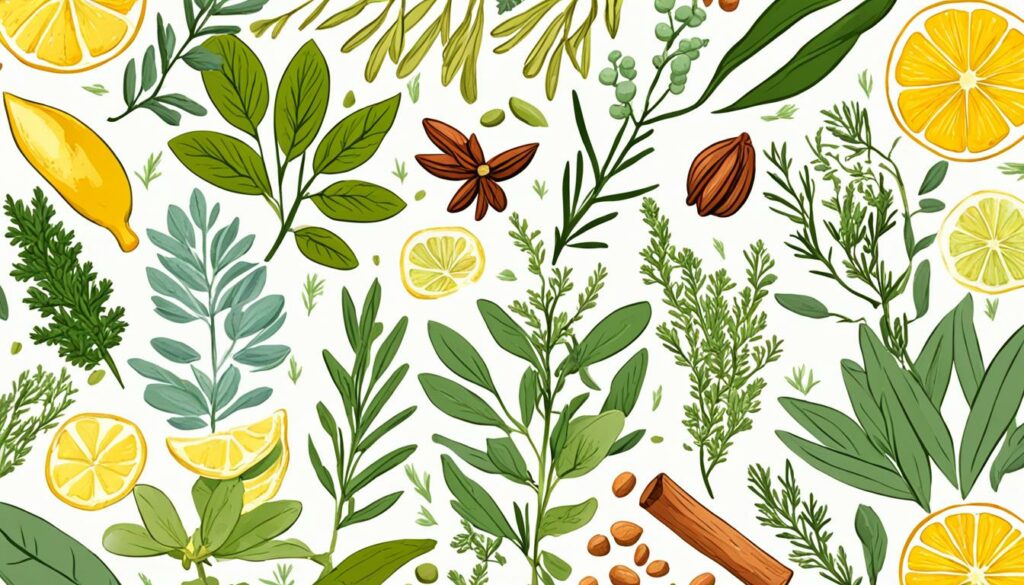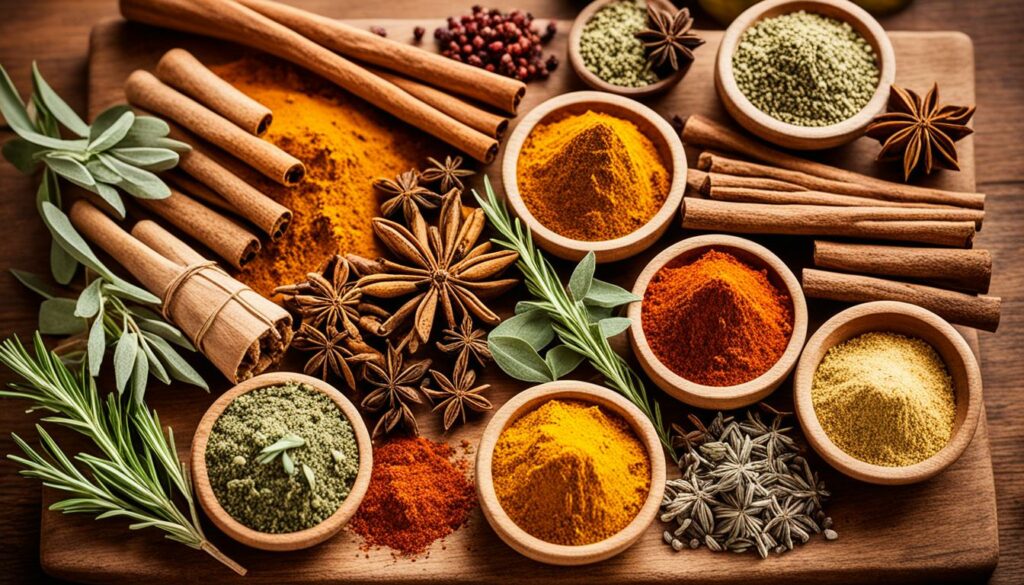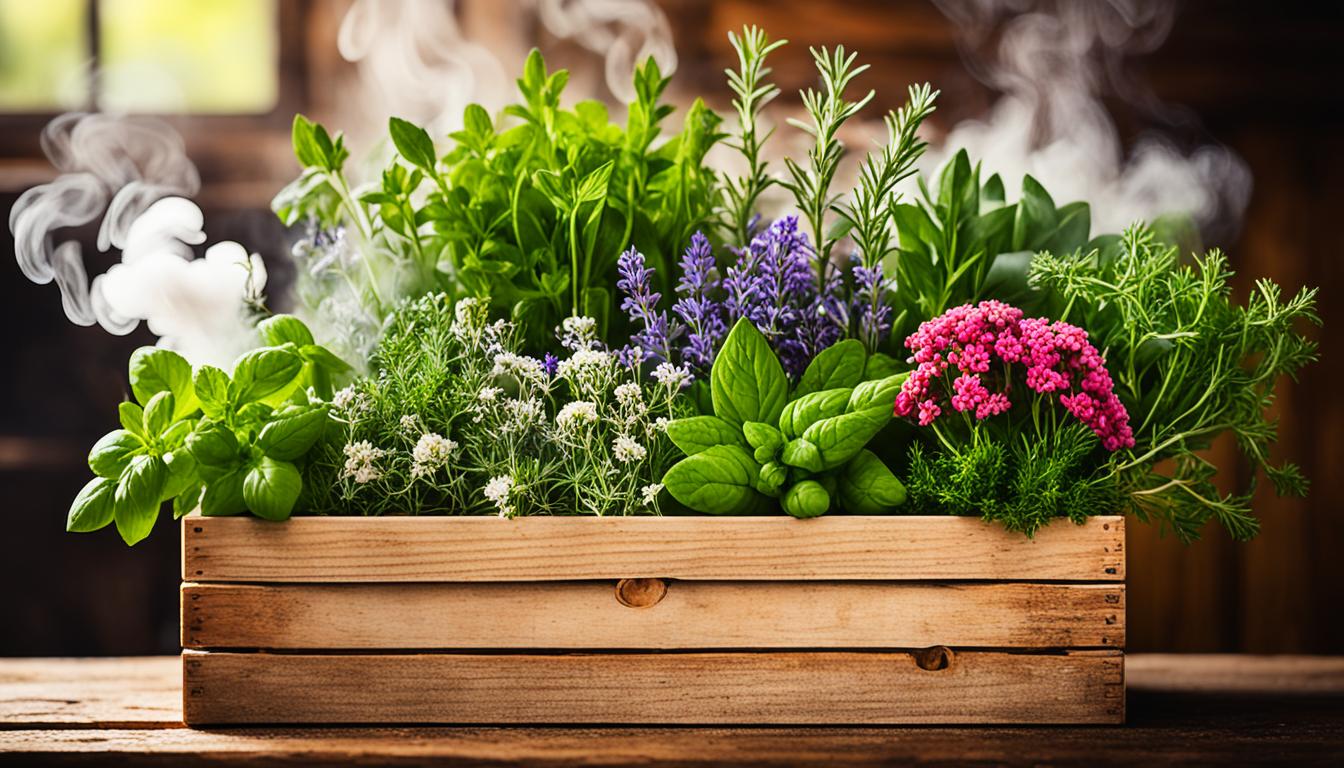Are you tired of relying on over-the-counter medications to alleviate your cold symptoms? Discover the power of herbal remedies for colds and unlock nature’s most effective treatments.
When a cold strikes, it can leave us feeling miserable, with a stuffy nose, cough, and sore throat. But did you know that there are natural remedies that can provide relief from these symptoms? From centuries-old herbal treatments to immune-boosting foods, there are many ways to find comfort and accelerate your recovery.
In this article, we’ll delve into herbal remedies that can soothe coughs, clear congestion, and alleviate sore throats. We’ll explore the science behind these remedies and provide tips on how to use them safely. Are you ready to uncover the natural secrets to cold relief? Let’s get started!
The Healing Power of Herbal Ingredients
Herbal remedies for colds often contain powerful ingredients that can provide relief from cold symptoms. These natural alternatives to traditional cold treatments can help soothe coughs, clear nasal congestion, and alleviate sore throats. From herbs like echinacea and ginger to supplements like vitamin C and zinc, there are various herbal remedies available that can help ease the discomfort of a cold.
One popular herbal remedy for cold relief is echinacea. It is believed to stimulate the immune system, helping the body fight off the cold virus faster. Echinacea can be found in various forms, including capsules, tinctures, and teas. Its anti-inflammatory and antiviral properties make it an effective choice for combating cold symptoms.
Ginger is another herb commonly used in herbal remedies for treating colds. It has potent anti-inflammatory and antioxidant properties that can help reduce inflammation in the respiratory system and alleviate coughs. Ginger can be consumed in the form of tea, added to soups or stir-fries, or taken in supplement form.
When it comes to supplements, vitamin C and zinc are often recommended as part of the best herbal remedies for cold relief. Vitamin C is known for its immune-boosting properties, while zinc can help reduce the severity and duration of cold symptoms. These supplements can be taken in tablet or powder form, and are widely available at pharmacies and health stores.
It’s important to note that while herbal remedies can provide relief from cold symptoms, they may not completely cure the common cold. It’s always advisable to consult with a healthcare professional before starting any herbal treatment, especially if you have any underlying medical conditions or are currently taking other medications. Additionally, herbal remedies should be used in conjunction with rest, hydration, and other self-care measures to promote faster recovery.
| Herbal Ingredient | Benefits |
|---|---|
| Echinacea | Stimulates the immune system and reduces cold symptoms |
| Ginger | Anti-inflammatory and antioxidant properties help alleviate coughs and reduce inflammation in the respiratory system |
| Vitamin C | Boosts the immune system and reduces the severity of cold symptoms |
| Zinc | Reduces the duration and severity of cold symptoms |
By incorporating these herbal remedies into your cold relief routine, you can find natural and effective ways to alleviate the discomfort of a cold. However, it’s important to remember that individual results may vary, and it’s always best to seek professional medical advice for personalized treatment.

Foods That Fight the Common Cold
Along with herbal remedies, certain foods can also aid in fighting off the common cold. Incorporating these immune-boosting foods into your diet can provide natural relief from cold symptoms.
Vitamin C-rich foods: Citrus fruits, such as oranges and grapefruits, and vegetables like bell peppers are excellent sources of vitamin C. This essential nutrient can boost the immune system and help shorten the duration of cold symptoms.
Honey: Known for its soothing properties, honey can help alleviate a sore throat and act as a cough suppressant. Adding a teaspoon of honey to a warm cup of herbal tea can provide comfort and relief.
Garlic and onions: These flavorful ingredients contain compounds that have antimicrobial properties and can help clear infections. Adding minced garlic or sliced onions to soups, stews, or stir-fries can provide both flavor and immune-boosting benefits.

By incorporating these foods into your diet, you can naturally support your body’s immune system and help fight off the common cold.
The Science Behind Herbal Remedies
While herbal remedies for colds have been used for centuries, it’s important to understand the scientific evidence behind their effectiveness. Some studies have shown that certain herbal ingredients, such as echinacea and garlic, can help reduce the severity and duration of cold symptoms. However, the results are mixed, and more research is needed to fully understand the benefits of herbal remedies for cold relief. It’s always advisable to consult with a healthcare professional before starting any herbal treatment.

In a study published in the Journal of the American Medical Association (JAMA), researchers found that echinacea can help reduce the risk of developing a cold by 50% and shorten the duration of a cold by one and a half days. Another study published in the Cochrane Database of Systematic Reviews reported that garlic supplements may help reduce the severity and duration of cold symptoms, although the evidence is limited.
While these findings suggest that herbal remedies can be effective in treating colds, it’s important to note that individual results may vary. The effectiveness of herbal remedies may depend on factors such as the specific herbal ingredients used, the dosage, and the individual’s overall health.
“Herbal remedies have been used for centuries to treat various ailments, including colds,” says Dr. Sarah Thompson, a naturopathic physician.
“While scientific evidence may be limited, many patients find relief from their cold symptoms with herbal remedies. It’s important to consult with a healthcare professional to ensure the right herbal treatment is chosen and to avoid any potential interactions with medications.”
Herbal Remedies for Colds
| Herbal Ingredient | Potential Benefits |
|---|---|
| Echinacea | May help boost the immune system and reduce cold symptoms |
| Garlic | May have antimicrobial properties and help reduce the severity of cold symptoms |
| Ginger | May help soothe coughs and reduce inflammation |
| Peppermint | May help relieve nasal congestion and soothe sore throats |
Note: It’s important to consult with a healthcare professional before starting any herbal treatment to ensure the safety and effectiveness for individual use.
While herbal remedies can provide natural relief for cold symptoms, it’s always best to use them as part of a comprehensive treatment plan that includes rest, hydration, and other self-care measures. Additionally, it’s important to source herbal remedies from reputable brands to ensure quality and potency.
Tips for Using Herbal Remedies Safely
While looking to herbal remedies for relief from cold symptoms, it is crucial to prioritize safety. Consult your doctor before starting any herbal treatments, particularly if you are pregnant, have a medical condition, or take other medications. Their expertise will ensure that the chosen herbal remedies are compatible with your specific circumstances.
When using herbal remedies, it is vital to follow dosage instructions carefully. Too much or too little of a specific remedy can have unintended effects. By adhering to the recommended dosages, you can maximize the potential benefits and minimize any potential risks.
Additionally, it’s essential to be mindful of potential side effects when using herbal remedies. Although they are natural, they can still interact with other medications or cause adverse reactions in some individuals. Pay close attention to how your body responds to the herbal remedies and consult your healthcare provider if you experience any unexpected symptoms.
Lastly, remember that herbal remedies are not a cure for colds. They should be used as part of a holistic approach that includes rest, hydration, and other self-care measures. While herbal remedies can provide natural relief from cold symptoms, they work best when combined with proper rest and healthy lifestyle choices.

